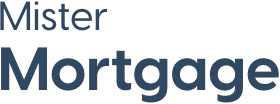A lot of mortgage-related phrases get thrown around here, and it doesn’t help that many of them are in Dutch. We want to help you to understand the terminology and phrases that are widely used when talking about mortgages for internationals in the Netherlands. We’ve deciphered the most common terms to help you with your research.
Annuity
A type of mortgage (annuïteitenhypotheek) in which monthly payments amount to the same level and interest payments decline over time. Compare different types of mortgages.
Closing fees
The costs involved in securing a mortgage. Use our calculator to find out your mortgage closing fees.
Cooling-off period / cancellation clause
The period (usually three days) in which buyers have to opt out of a purchase agreement. Find out more on our blog about the cooling-off period/cancellation clause.
Eigen grond
When you also own the land, the house is built on, sometimes known as freehold (as opposed to a ground lease).
Extra repayments
You can choose to make extra repayments (extra aflossing) either monthly or as one-off lump sums. If you want to sell your home and close your mortgage, banks in the Netherlands never charge residential homeowners for this. In other situations, there may be an early repayment fee or administration costs.
Fixed-term/fixed interest rate
When the interest rate remains the same (with some fluctuation for taxes or homeowners’ association costs). You can choose to fix the interest rate for any period between 1 month and 30 years.
Floating interest rate
Sometimes known as a variable interest rate, this is when the interest rate resets at specific intervals throughout the duration – usually one month.
Ground lease (erfpacht), or leasehold
Common in most Dutch cities, this is when property owners are charged a fee for using the land. A perpetual ground lease remains fixed, while a continuous ground lease is adjusted every 50 or 75 years. This fee is considered when working out your maximum mortgage calculation.
Home Insurance
Property owners must purchase the appropriate insurance. Those who own a house require building insurance (opstalverzekering), although, for apartment owners, this is typically covered in the fees to the homeowners’ association. Household contents insurance (inboedelverzekering) is not mandatory but recommended.
Interest-only mortgage
A type of mortgage (aflossingsvrije hypotheek) in which you only pay interest throughout the duration and the loan as a lump sum at the end of the term. Compare other types of mortgages.
Kosten koper (K.K.)
This literally translates as ‘all costs for the buyer’, meaning closing fees are to be covered by the buying party.
Legal expenses insurance
Homebuyers can opt to purchase legal expenses insurance (rechtsbijstandsverzekering), which covers the costs of legal advice and proceedings involving homeownership – so they’ll always know their rights regarding employment and financial matters.
Life insurance
Life insurance policies (overlijdensrisicoverzekering) can be purchased to provide financial security in situations such as if a loved one dies. Some lenders require a life insurance policy, and it is mandatory for single people.
Linear mortgage
A type of mortgage in which loan repayments remain constant while the interest gradually decreases. Compare other types of mortgages.
Loan-to-value ratio (LTV)
Given as a percentage, this is the ratio of the requested mortgage divided by the purchase price or value of the home. The maximum mortgage in the Netherlands is 100% of the market value, and you can pay a lower interest rate on a loan that is lower than the home’s value.
Loan-to-income ratio (LTI)
The ratio of the requested mortgage to your income which also considers your gross salary, employment contract, additional income, and other factors.
Hypotheek
Mortgage
Hypotheekadviseur
Mortgage advisor
Makelaar
A realtor who represents the seller or buyer of the home.
Mortgage duration
The duration (looptijd) of your mortgage – usually 30 years in the Netherlands.
Mortgage estimate
An estimate of the closing costs, maximum loan-to-income, and monthly payments. Pre-approval for mortgages doesn’t exist in the Netherlands but this provides a detailed summary of your maximum mortgage.
Mortgage interest tax-deductible or mortgage interest deduction
This tax break (hypotheekrenteaftrek) allows you to deduct mortgage interest from your taxable income. You can receive this from the Dutch tax authorities either monthly or annually.
Makelaarsvereniging Amsterdam (MVA)
The professional association for estate agents in the Amsterdam region.
Net monthly costs
Your net monthly costs (netto maandlasten) is what you pay each month for your mortgage and its interest, excluding the tax-deductible interest (hypotheekrenteaftrek).
Nationale Hypotheekgarantie (NHG)
A government guarantee for mortgages lower than a certain threshold, which was introduced to help make buying homes more affordable.
Nederlandse Vereniging van Makelaars (NVM) and Vereniging Bemiddelaars Onroerende zaken (VBO )
The Netherlands’ two largest association of certified real-estate professionals.
Notary
The legal professionals involved when an immovable property transfers from one person to another.
Property transfer tax
In the Netherlands, you pay property transfer tax (overdrachtsbelasting) when you become the owner of any immovable property, such as a residential building or plot of land. Property transfer tax is 2% of the purchase price. You also pay annual property tax (OZB), a lower amount determined by your municipality.
Property value
Each year, the value of all real estate is assessed by your municipality according to the Valuation of Immovable Property Act (Wet Waardering Onroerende Zaken, or WOZ) based on the market values.
Provisional purchase agreement
The provisional purchase agreement (voorlopige koopovereenkomst) is signed by the selling and buying parties, and sets out the details of the purchase and eventual property transfer. We always advise using the so-called ‘Amsterdam Model’ in which the agreement is set up by the notary instead of the selling real estate agent.
Tax deductibles
Dutch tax law allows for a variety of deductibles (aftrekposten). As well as the mortgage interest tax-deductible (see above), many mortgage-related costs are also tax-deductible, including valuation fees, advice fees, handling fees, notary fees, and early repayment fees. The exact amount of the return depends on your tax circumstances.
Valuation / appreciation
A valuation report or appraisal (taxatierapport) will be passed to your financer to confirm the condition and value (taxatiewaarde) of the property you intend to buy. The prospective buyer pays the taxation costs (taxatiekosten). This provides proof to the bank of what they’re financing. They use the market value stated in the report to calculate the loan-to-value.
Vereniging van Eigenaren (VvE)
If you buy an apartment, you automatically become a member of a VVE, or homeowners’ association. You’re required to contribute towards the maintenance of shared areas, so always check the monthly or annual fees, which are separate from the purchase costs. This contribution does not impact your maximum mortgage.
Vrij op naam (v.o.n.)
Freehold, meaning all the extra costs are included in the list price (covered by the seller). This is most commonly seen on new build property and houseboat listings.
-
Plan a 10-minute call with us. We want to learn more about your financial goals.
-
We set up a mortgage report.
-
We plan a second call to discuss your mortgage calculations.
-
What's next? It is time to start looking for your dream house.

- No obligations
- No hidden fees









